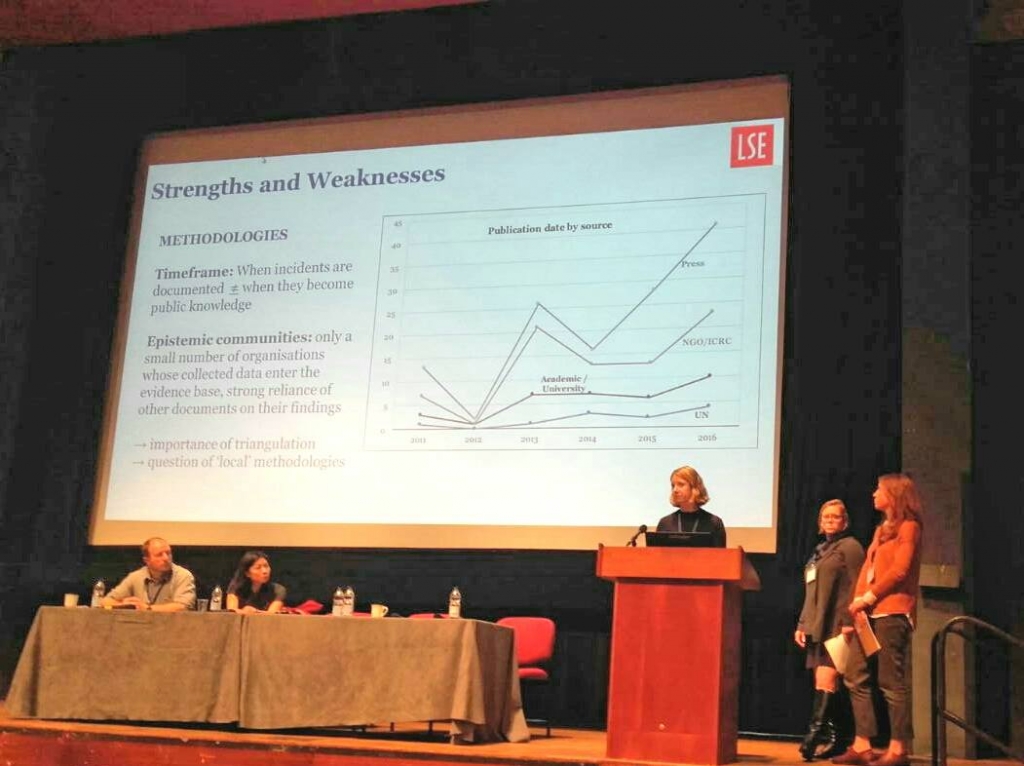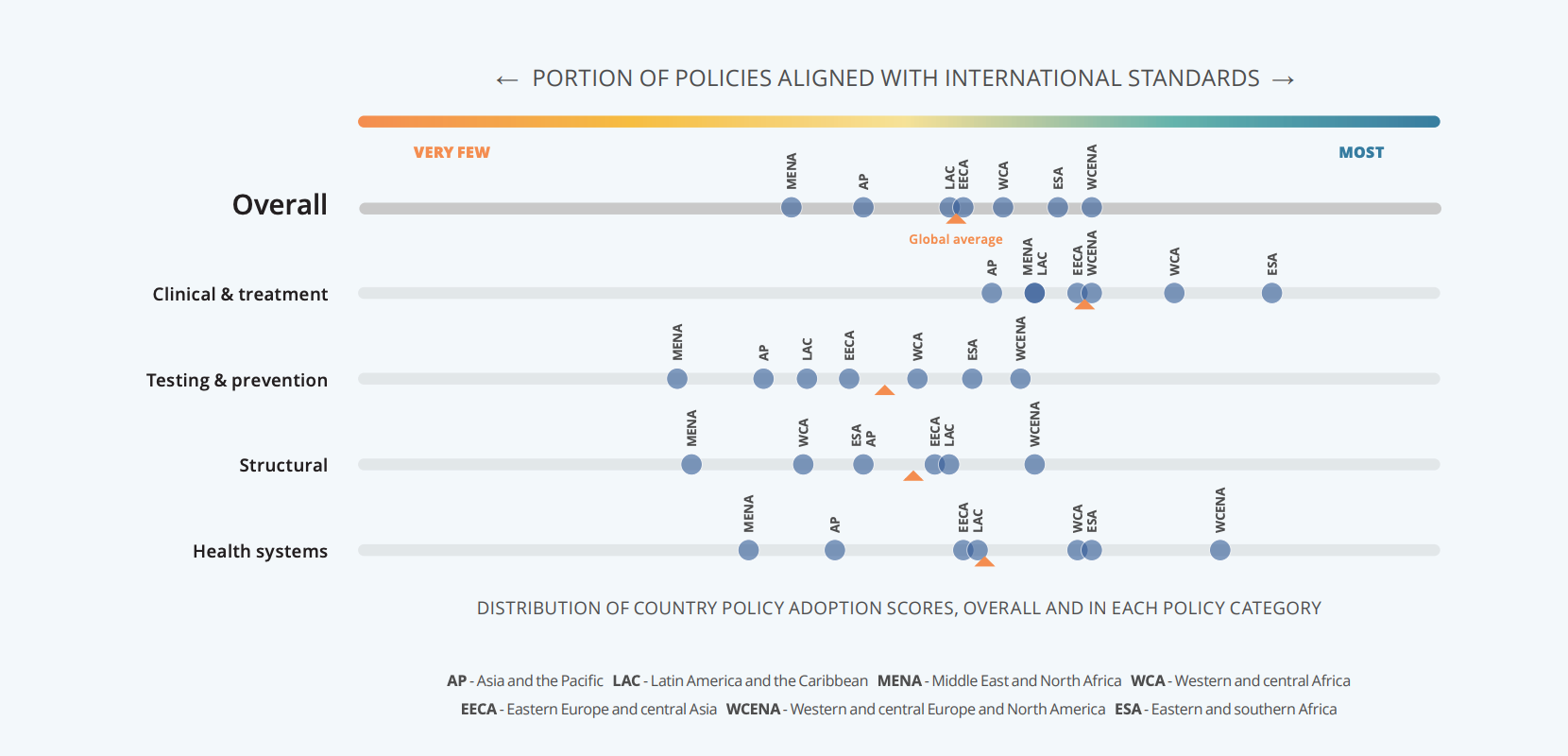The International Development and Humanitarian Emergencies (IDHE) consultancy project gives students the opportunity to work with organisations on real-world, contemporary humanitarian issues. MSc students Michelle Mülhausen, Emma Tuck, and Heather Zimmerman on finishing their consultancy project, have continued to engage with stakeholders and disseminate findings to expand the research and further influence policy.

The consultancy project was undertaken for Chatham House, in partnership with Médecins Sans Frontières (MSF) and the International Committee of the Red Cross (ICRC), and investigated to what extent the existing evidence base on attacks on healthcare in conflict (AHCC) could be combined, validated, and used to corroborate further academic and policy oriented research. Combining a rapid review with expert interviews and a seminar, the research engaged thoroughly with multiple disciplines and a rigorous and replicable methodology. The final report provides a systematic assessment of the quality and use of the current evidence base on AHCC whilst highlighting its potential unintended consequences.
The report reveals the rise in attention on AHCC over the past five years, as a result of several advocacy campaigns that have mobilised political will in the international community to tackle this issue. These include the ICRC’s Health Care in Danger (HCiD) project, MSF’s Medical Care Under Fire (MCUF), and the Safeguarding Health in Conflict Coalition. These initiatives have also produced several global governance efforts, such as the passage of United Nations Security Council Resolution 2286, which condemns attacks against medical facilities or staff.
Despite these efforts, the research found that the evidence base is not representative and claims of worsening attacks are not backed by robust evidence, clear methodologies, or comprehensive data. This leads to a disconnect between global opinion and the reality on the ground. Furthermore, the failure to agree on a common set of definitions and standards makes it impossible to include multiple forms of AHCC in statistics and the evidence base privileges data from a limited number of organisations, whilst excluding others.
The consultancy report was positively received and several recommendations were immediately acted upon. For example, Chatham House recruited a Syrian medical professional and researcher to pursue contextualised exploration and analysis of AHCC in the Middle East. Furthermore, the report was highlighted in the ICRC’s HCiD May newsletter and the researchers where invited to present the report’s main findings at the Health Through Peace Conference at the University of York in September 2017.
The Medact Forum and International Physicians for the Prevention of Nuclear War (IPPNW) World Congress organised Health Through Peace 2017, bringing together key academics, global health professionals, humanitarians, and peace activists to advocate for social justice, discuss the state of global war and conflict, promote effective peace building and demilitarisation, and to tackle global health crises.
In the Central Hall on the second day of the conference, the LSE researchers joined a panel for the academic session ‘Attacks on healthcare in conflict.’ The presentation sparked much interest and discussion from practitioners and academics alike. In addition to presenting the research methodology and primary assessment, concentrated attention and debate focused on the five unintended consequences identified by the research. These unintended consequences emerge from the advocacy emphasis around AHCC that promotes awareness-raising through a reductionist understanding of the issue. Consequently, data is used in a way that ignores the context-specific nature of attacks and privileges particular types and locations of AHCC. This produces a number of potentially adverse effects, including portraying certain forms of AHCC as exceptional and, in turn, invalidating other contexts or forms of violence against healthcare.
Specifically, two key findings received the most interest and were largely corroborated by participants. Firstly, the focus on generating visibility for AHCC taps into the attention economy that emphasises increasing attention without necessarily leading to a better understanding of the problem. This shows the conflation between analytical and advocacy objectives and raises questions about the purpose and ethics of reporting. This point was emphasised by Françoise Bouchet-Sauliner (Legal Director of MSF), who questioned the usefulness of global statistics and awareness raising campaigns for addressing, mitigating, and preventing AHCC in the field. This supports the report’s finding that qualitative methods and contextualised reporting provide greater understanding of motivations and thus can support prevention strategies. Secondly, the exceptional attention and treatment of AHCC at an international level has the potential to create perverse incentive structures that can encourage armed actors seeking global attention to adopt AHCC as a strategic form of violence. This recognises the possibility of the dominant discourse denouncing AHCC to be used as an incentive by insurgent groups that use forms of organized violence attracting high international attention to create a path to gain power, recognition, and a place at the bargaining table. This emphasises the importance of weighing the full consequences of advocacy campaigns, as opposed to treating attention as a goal in its own right.
The presentation concluded with recommendations to advance understanding and response to AHCC. Specifically, data collection must be improved and the approach to analysing and theorising about AHCC must be more multidisciplinary, contextualised, and qualitative. The need for further research, including a full systematic review, was widely agreed upon by participants who acknowledged the lack of historical documentation of AHCC. Based on the interest and momentum gained, the researchers are working on a journal article emphasising the most influential findings.
For more about this project or anything presented here please contact researchers m.mulhausen@lse.ac.uk, h.zimmerman@lse.ac.uk and e.tuck@lse.ac.uk.
Michelle’s background is in the intersection of political science and journalism, her research interests revolve around conflict, health and gender.
Heather has worked in the Ugandan health sector and holds research interests in gender-related violence.
Emma comes from working in humanitarian action on public health in conflict settings, her research interests lie in civil society and global health.
The views expressed in this post are those of the authors and in no way reflect those of the London School of Economics and Political Science or the LSE’s International Development blog.





